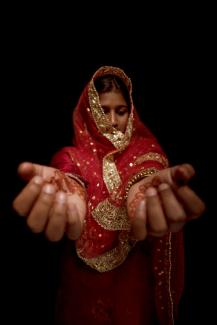Teenager
What sex education is really about

Sex education is most controversial in Pakistan. It is seen as immoral and vulgar. Common statements include:
- “Our children do not indulge in premarital sex, so why teach them about it?”
- “Our generation did well without it.”
- “It is a ploy to westernise our society.”
- “Sex comes naturally to everyone.”
- “It is unnatural for parents or teachers to talk about ‘sex’ with children.”
These statements reveal a deep misunderstanding. Those who say this, make people believe that sex education is about telling them to have sex. In truth, it is about health, hygiene, family planning and relationship needs.
Pakistan has one of the most youthful populations in the world. More than half of the people are younger than 30. They face huge challenges. The labour market offers too few opportunities, so many will depend on informal livelihoods. Masses are only poorly educated.
Deficient sex education adds to the problem. Young people do not understand how their bodies function, for example, and they have misconceptions of what gender relations are about. In the 21st century, moreover, ideas of sex are shaped by internet pornography which has a known propensity to include pictures of violence. The truth is that sex education is more important today than in the past.
On the other hand, it is clear that older generation would have benefited from better information too. Young girls, for instance, must know that the menstruation all of them experience is a perfectly normal physiological occurrence. Instead, it is hushed up. The result is shame, fear and unhygienic practices. When it occurs for the first time, menarche is a shock for young girls, and from then on, it is dealt with silence throughout their life.
In Pakistan, people – and especially women – still marry at a young age. One out of every three brides is still a teenager. Many become pregnant soon. This puts both their and their offspring’s health and life at risk. The experience shows that girls who marry early are less likely to finish school and less likely to find work outside the household. They become economically dependent and are at higher risk of domestic violence. The lack of sex education actually entrenches destructive gender roles and reduces young women’s scope for personal advancement. They must learn at a young age how they can become pregnant and what health requirements go along with pregnancy to protect them and their babies from harm.
It is well known that Pakistan must further reduce birth rates. The national government has been promoting family planning since the 1960s to reduce population growth. There have been some, but not sufficient results (see box). Pakistani women, on average, still give birth four times in their lives, and far too many young couples still do not use contraceptives.
Unwanted pregnancies
It is estimated that more than half of all pregnancies are unwanted. Though abortion is illegal in Pakistan, it is common. It is also dangerous – often provided by unskilled persons in settings that are unfit for a medical intervention. Telling teenagers early on how to use contraceptives and where to get them could make a difference.
Knowledge of blood-borne pathogens, such as hepatitis B and C and human immunodeficiency virus (HIV) is extremely low. Far too many people do not know that unsafe sex is not the only mode of transmission. Due to a culture of shame and contempt, no one knows the true extent of prevalence and incidence of such diseases. Sex education could improve matters.
Sexual abuse and exploitation of children is increasingly reported in Pakistan. It was perhaps always there, but always hushed up. Keeping everything related to sex shrouded in mystery does not protect the victims. It ensures impunity to perpetrators. Educating young people about their body makes them aware of their rights and provides them with means to protect themselves.
The sad truth is that young people continue to be neglected in Pakistan’s public affairs. The country has no national statistics on youth’s social and psychological well-being. No representative survey has ever assessed their mental health. It fits the pattern that they are denied essential information on reproductive health and sexuality.
Civil society organisations have piloted isolated initiatives to impart sex education in Pakistan. They often call it something like “life skills education” or “family life education”. By avoiding the word “sex” they hope to convey important knowledge to young people. They understand well that the lack of sex education causes problems.
And they also know that the older generation would have benefited from competent advice too. The plain truth is that sex education really is not about having sex. It is about preparing teenagers for a responsible, safe and fulfilling adulthood. Girls in particular need good sex education – they are the ones who will get pregnant (see Aditi Roy Ghatak in D+C/E+Z e-Paper 2019/05, Debate section).
Mahwish Gul is a consultant from Pakistan who specialises in development management and has recently moved to Nairobi.
mahwish.gul@gmail.com








